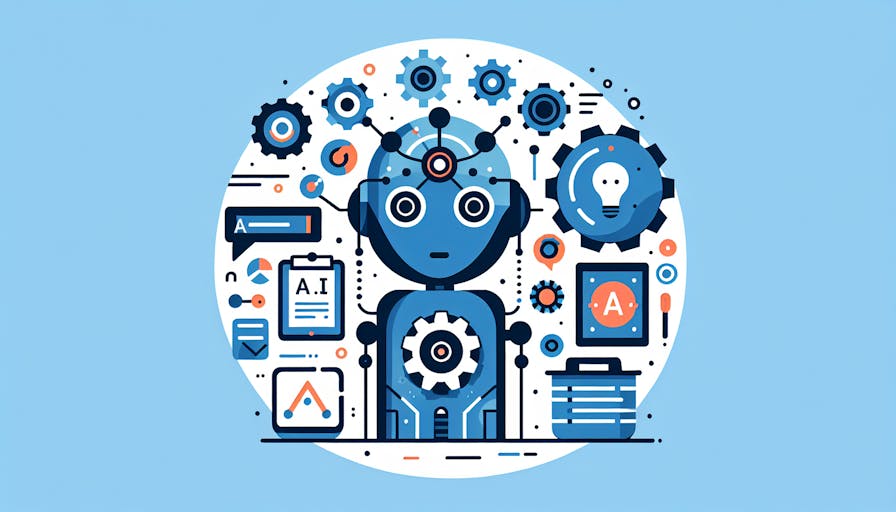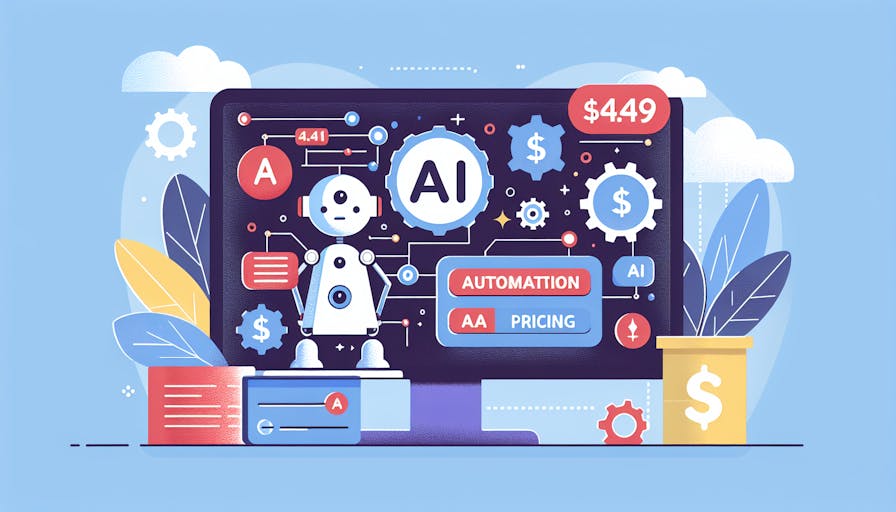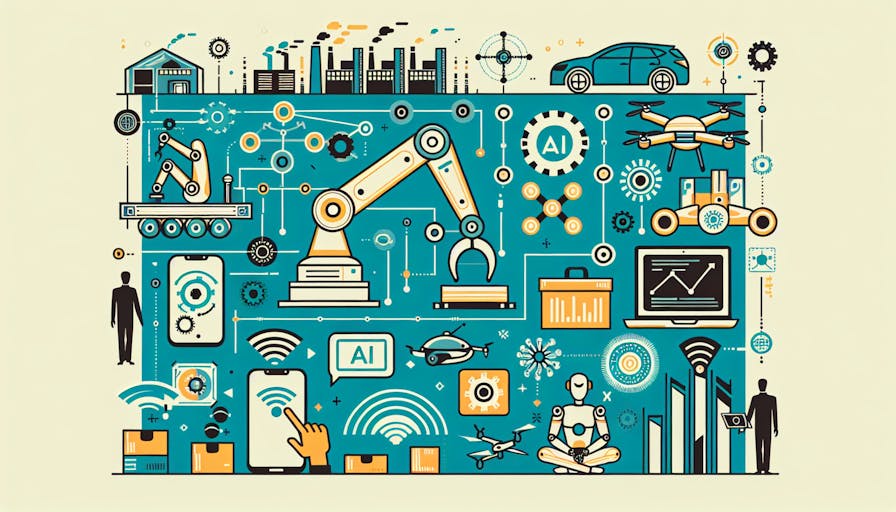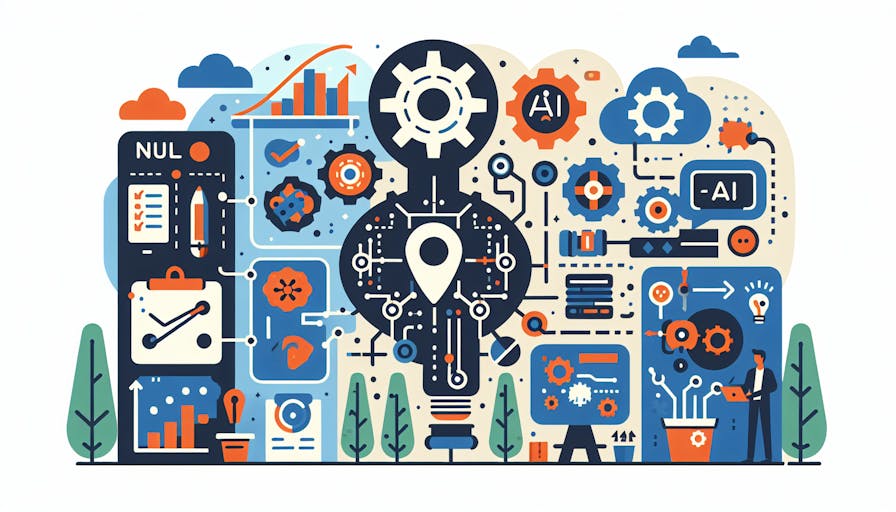AI automation agencies provide a range of services designed to enhance efficiency and streamline operations.
Demystifying AI Automation Agencies
What Defines an AI Automation Agency
An AI automation agency is a specialized firm that employs artificial intelligence technologies to streamline and enhance various business processes. These agencies combine the expertise of data scientists, AI engineers, and industry specialists to create tailored solutions that improve operational efficiency. The core function of an AI automation agency is to harness automation tools and AI algorithms to reduce manual effort, minimize errors, and enhance productivity.
Industries Served by AI Automation Agencies
AI automation agencies cater to a diverse range of industries. These sectors leverage AI technologies to address specific challenges and improve efficiency. Below is a table outlining common industries that benefit from AI automation services.
| Industry | Typical Applications |
|---|---|
| Healthcare | Patient data management, diagnostics |
| Finance | Fraud detection, risk assessment |
| Retail | Inventory management, customer insights |
| Manufacturing | Supply chain optimization, quality control |
| Marketing | Customer segmentation, targeted campaigns |
Benefits of Engaging with an AI Automation Agency
Engaging with an AI automation agency comes with numerous advantages. Below is a table summarizing the key benefits of utilizing their services.
| Benefit | Description |
|---|---|
| Increased Efficiency | Automating repetitive tasks frees up valuable time for staff. |
| Enhanced Accuracy | AI algorithms reduce human error, leading to more reliable outcomes. |
| Cost Savings | Lower operational costs through optimized processes. |
| Data-Driven Insights | Access to analytics and reports that guide strategic decisions. |
| Scalability | Solutions that grow with the business, adapting to changing needs. |
By understanding what defines an AI automation agency, the industries they serve, and the benefits of their services, I can better appreciate how these agencies leverage technology to drive business success. For more insights on the advantages of AI in automation, check out my article on benefits of ai automation.
Services Offered by AI Automation Agencies
AI automation agencies provide a range of services designed to enhance efficiency and streamline operations. Among these services, I find process automation, data analysis and insights, and customer relationship management particularly noteworthy.
Process Automation
Process automation involves the use of AI technologies to perform repetitive and rule-based tasks without human intervention. This service helps organizations increase productivity and reduce errors. By automating routine tasks, I can focus on more strategic initiatives.
Here are some common tasks that can be automated:
| Task Type | Automation Benefit |
|---|---|
| Data Entry | Reduces time spent on manual entry |
| Report Generation | Provides real-time insights |
| Invoicing | Decreases time-to-payment |
Data Analysis and Insights
Data analysis and insights are vital for informed decision-making. AI automation agencies leverage advanced analytics tools to gather, process, and interpret large datasets. This allows me to draw actionable insights and identify trends that would be difficult to uncover manually.
Key aspects of this service include:
| Feature | Description |
|---|---|
| Predictive Analytics | Forecasting future trends |
| Visualizations | Simplifying complex data |
| Real-Time Reporting | Instant access to analytics |
Customer Relationship Management
Customer relationship management (CRM) facilitated by AI automation tools enhances how I engage with customers. These tools help streamline communication, track customer interactions, and manage sales pipelines, leading to improved customer satisfaction and loyalty.
Key functionalities include:
| CRM Feature | Benefit |
|---|---|
| Automated Responses | Timely customer support |
| Lead Scoring | Prioritizing prospects |
| Data Integration | Comprehensive customer views |
Each of these services contributes to the overarching goal of improving operational efficiency and fostering business growth. For more information on how AI can drive significant improvements, check out the benefits of AI automation. If you're curious about pricing models, refer to the article on AI automation agency pricing.
Choosing the Right AI Automation Agency
Finding the right AI automation agency is crucial for achieving successful outcomes in my automation projects. I need to carefully consider several factors to ensure that I choose a capable partner that aligns with my goals.
Factors to Consider
When selecting an AI automation agency, several key factors come into play:
| Factor | Description |
|---|---|
| Industry Expertise | I should look for agencies with experience in my specific industry. Their familiarity with best practices can lead to more effective solutions. |
| Service Offerings | I need to evaluate the range of services offered, including ai automation agency services. Agencies with comprehensive solutions are more likely to meet my needs. |
| Client Testimonials | Reviews and case studies can provide insight into the agency's previous successes and their ability to deliver results. |
| Scalability | It’s important to determine if the agency can scale its services as my business grows. |
| Support and Maintenance | Continuous support for the AI solutions is critical for long-term success. I should inquire about their maintenance offerings. |
Evaluating Expertise and Experience
Assessing the expertise and experience of an AI automation agency involves several steps:
-
Portfolio Review: I should examine the agency's portfolio to see examples of past projects. A diverse portfolio can indicate versatility and expertise in various applications.
-
Team Qualifications: I need to consider the qualifications of the team members. Their educational background, experience, and certifications can reflect the agency's overall expertise.
-
Technical Skills: Understanding the technical skills the agency offers is essential. I can ask about their proficiency in relevant AI technologies and methodologies.
-
Recent Projects: It's beneficial to discuss the agency's recent projects, as this demonstrates their current capabilities and what they are working on.
-
Session Costs: I must be aware of ai automation agency pricing to ensure that the services align with my budget.
Choosing the right agency requires thorough research and consideration of these factors. Each decision will impact the effectiveness of my AI automation initiatives, so I will take my time to evaluate my options carefully.
Implementing AI Solutions
Implementing AI solutions requires a strategic approach to ensure effectiveness and alignment with business goals. Two key aspects of this process are customized automation solutions and the integration with existing systems.
Customized Automation Solutions
One of the primary services offered by an AI automation agency is the development of customized automation solutions. These solutions are tailored to meet the unique needs of a business, ensuring that the technology aligns with specific workflows and objectives.
The customization process typically includes several steps:
- Needs Assessment: I discuss with stakeholders to understand their pain points and objectives.
- Solution Design: I collaborate with AI experts to design a solution that fits the identified needs.
- Development: The automation solution is built, often incorporating machine learning and natural language processing capabilities.
- Testing: I ensure the solution is rigorously tested to guarantee that it performs as expected.
| Step | Description |
|---|---|
| Needs Assessment | Identifying business requirements and pain points. |
| Solution Design | Crafting a tailored automation strategy. |
| Development | Implementing AI technologies according to design. |
| Testing | Verifying functionality and effectiveness. |
This tailored approach helps maximize efficiency and effectiveness, leading to significant benefits of AI automation for the organization.
Integration with Existing Systems
Integration with existing systems is a crucial aspect of AI implementation. Simply introducing a new solution is not enough; it must seamlessly work alongside current technologies to enhance overall operations.
The integration process involves:
- System Analysis: I assess the existing infrastructure to identify compatibility and gaps.
- Integration Planning: Detailed planning for how the new automation solution will interact with current systems.
- Implementation: Actual integration of the AI solution with legacy and contemporary systems.
- Testing and Validation: Ensuring that the integration functions properly and improves workflows without disrupting existing operations.
| Integration Process Element | Description |
|---|---|
| System Analysis | Evaluating current technology for compatibility. |
| Integration Planning | Strategizing the merging of systems. |
| Implementation | Merging the new solution with existing systems. |
| Testing and Validation | Ensuring system stability and functionality. |
Effective integration enhances overall productivity and allows organizations to leverage the diverse capabilities of their technology. For insights into how to execute this effectively, check out our article on AI automation implementation process.
These two aspects of implementing AI solutions – customized automations and seamless integration – are vital components of the services provided by AI automation agencies, helping me and others in the industry achieve the best possible outcomes.
Collaborating with AI Experts
Collaboration is key when working with an AI automation agency. Building a strong communication framework and ensuring continuous monitoring of the implemented solutions are critical components of the process.
Communication and Collaboration
Effective communication establishes a foundation for productive collaboration. I find that open channels between my team and the AI experts allow for a better understanding of the project goals and expectations. Regular meetings help maintain alignment and address any challenges that may arise during the automation process.
The following aspects are essential for successful communication:
| Communication Aspect | Description |
|---|---|
| Regular Updates | Schedule frequent check-ins to discuss progress. |
| Clear Feedback | Provide specific feedback to ensure adjustments are made. |
| Collaborative Tools | Utilize project management tools for transparency. |
This framework enables all parties to remain informed and engaged throughout the project’s lifecycle. Furthermore, utilizing collaborative tools can enhance the sharing of ideas and resources, leading to more innovative solutions.
Monitoring and Continuous Improvement
Monitoring the performance of AI solutions is vital for ensuring they meet the desired outcomes. I believe in setting up key performance indicators (KPIs) that align with project goals. This helps in evaluating how effectively the automation processes are functioning.
Here's an example of potential KPIs for assessing AI automation agency services:
| KPI | Purpose |
|---|---|
| Error Rate | Measures the frequency of mistakes in automated processes. |
| Processing Time | Assesses the speed of task completion compared to manual efforts. |
| User Satisfaction | Gathers feedback from end-users on the effectiveness of the automation. |
Continuous improvement involves regularly reviewing these KPIs and making data-driven adjustments to enhance the automation processes. I also keep an eye on ai automation trends to stay updated with the latest developments, which can provide insights for further improvements.
Engaging closely with AI experts through effective communication and monitoring will significantly enhance the success of any automation project I undertake. By fostering collaboration, I ensure that the solutions remain aligned with evolving business needs and maximally beneficial. For more insights on automation, explore the benefits of ai automation and the ai automation implementation process.




